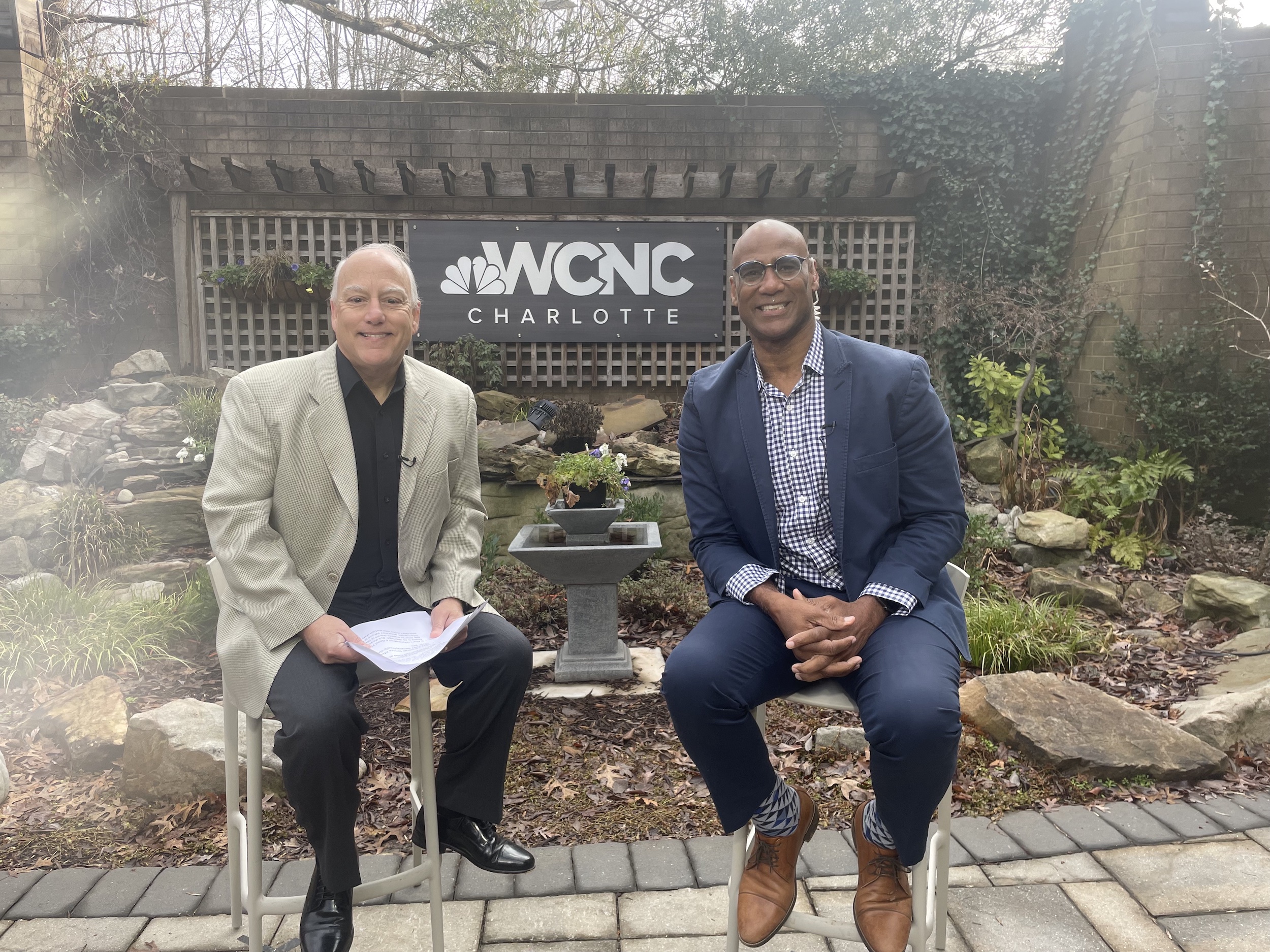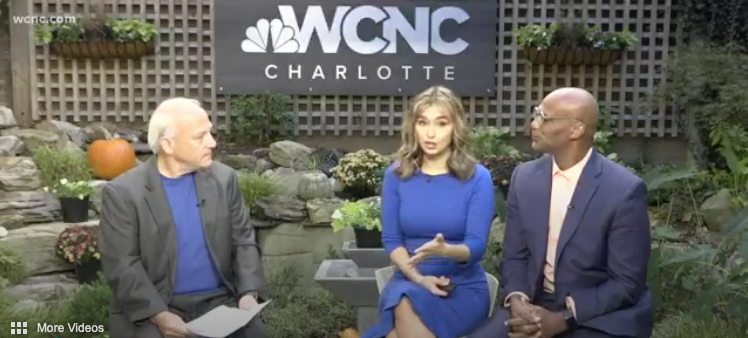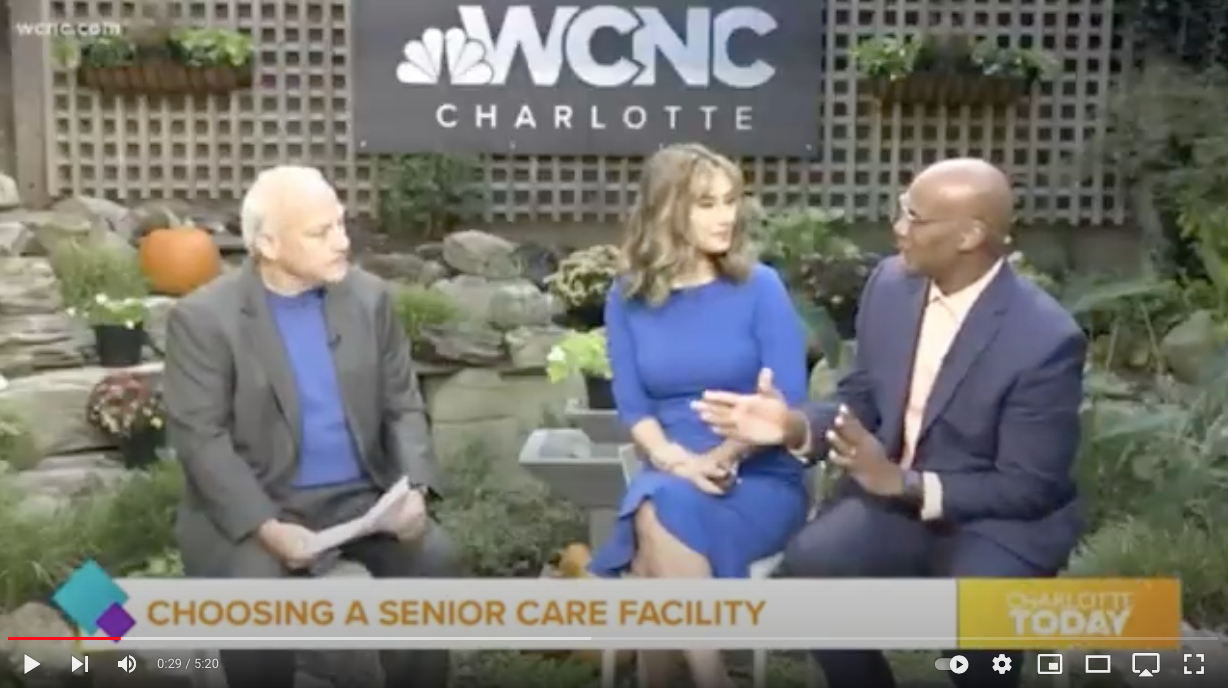Caregiver Support Services-Worth the Time or Waste of Time-Charlotte Today

Caregiver Support Services
There are 50 million family caregivers in the U.S. That number is probably low considering that many people became caregivers for the first time during Covid. The number of caregiver support services arising to assist family caregivers has also risen. A simple add-on to employee benefit programs have been bundled programs that offer everything from personal concierge services to financial guidance to referral services. Depending on what is offered, these services can be valuable or conversely, be confusing and drain your limited time and energy. I help sort it out on Charlotte Today.
4 Ways to Stay Fit as a Senior-Exercise Routine can be Extremely Beneficial
4 Ways to Stay Fit as a Senior
According to Science Daily, exercise allows seniors to maintain their cognitive skills. It also helps seniors to maintain mobility and energy levels. In order to stay fit, however, it’s necessary to take certain precautions and make some changes that will ensure you stay well informed and motivated. Let’s see how you can stay fit.
1. See a Doctor Beforehand
A combination of exercises focusing on stretching, balance, and cardio can keep your range of movement, prevent accidents, and even reduce the fatigue you feel during activity. However, starting a routine without proper physician advice could be more damaging than helpful.
It’s highly recommended that you visit your doctor before you start a new routine, and do a full check-up. With all of your up-to-date health information handy, your doctor will be able to inform you about not just what exercises you can do, but what you should be focusing on in order to maximize your fitness.
2. Get the Proper Sneakers
Exercises like walking and golfing are excellent activities for staying healthy. However, even low-impact activities like these can have a long-term effect on our joints, if we repeat them daily.
While there are plenty of sneakers that use technology to offer speed boosts, seniors should try to find a pair that puts safety first. VeryWellFit has explored this idea in some detail and recommends that seniors find walking or running shoes with rounded toes, different sizes according to width, and light but soft cushioning. Shoes that fit this general description will typically be poised to accommodate some of the changes that occur in your feet as you get older (widening, loss of natural cushioning, etc.).
3. Follow a Virtual Fitness Class
Starting an exercise routine can have positive effects on both physical and mental well-being. However, it can be easier said than done for a lot of seniors who may be limited in their options. One solution that’s particularly popular, however, is to join a virtual fitness class that affords you more flexibility to maintain your participation.
According to KelseyCare Advantage, many seniors will have access to these sorts of classes already through a program called “Silver Sneakers” that is attached to Medicare Advantage plans. The program offers multiple live activities led by professional trainers, as well as access to hundreds of instructional videos on nutrition and workout routines. It also comes with an app that allows the user to schedule activities and provide reminders.
4. Find the Right Company
If you are able to work out regularly in person, it’s a good idea to establish a routine with a group! According to data discussed by NBC News, people who exercise in groups are more likely to complete their routines and programs. Similar studies concerning seniors specifically have yielded similar findings.
Exercising with a friend (or friends) also has the advantage of providing an extra level of protection in case of injury. It’s easy enough to underestimate the probability of accidents due to getting dizzy, or just stumbling upon an unseen obstacle. Having a partner can reduce the chance of this happening.
Take these stay fit tips to heart, and you’ll be on your way toward a healthy and productive fitness routine.
Staffing in Senior Living – A Choice Point – My Segment on Charlotte Today
When Choosing Senior Care, Staffing is Key to Consider
There are many ways to go about choosing a senior care community for a loved one. You may be overwhelmed with questions to ask. How do I pay? What percentage of the staff is vaccinated? Are they for-profit or not-for-profit? The list goes on, however If you want to hone in on one thing, consider the subject of staffing.
According to a survey published in September from the American Health Care Association, “86% of nursing homes and 77% of assisted living providers said their workforce situation has gotten worse over the last three months.” While this has been worsened by Covid, it is nothing new. In my book, Who Moved My Dentures?, that published in 2003, a professional from the New Jersey Ombudsman’s Office said this: “The biggest problem today is staffing and it applies to all states. Years ago, abuse was the biggest problem. It still exists but now the bigger issue is neglect because of inadequate staffing and poor work ethics.” Trust in long-term care has eroded. With that, consideration of long-term care has dropped. That has an impact on census, revenue and budgets. So, what happens? People are let go. Those who stay are asked to do more and burn out.
Podcast: Play in new window | Download
Subscribe: Apple Podcasts | RSS
Staffing in Senior Living – A Choice Point – My Segment on Charlotte Today
When Choosing Senior Care, Staffing is Key to Consider
There are many ways to go about choosing a senior care community for a loved one. You may be overwhelmed with questions to ask. How do I pay? What percentage of the staff is vaccinated? Are they for-profit or not-for-profit? The list goes on, however If you want to hone in on one thing, consider the subject of staffing.
According to a survey published in September from the American Health Care Association, “86% of nursing homes and 77% of assisted living providers said their workforce situation has gotten worse over the last three months.” While this has been worsened by Covid, it is nothing new. In my book, Who Moved My Dentures?, that published in 2003, a professional from the New Jersey Ombudsman’s Office said this: “The biggest problem today is staffing and it applies to all states. Years ago, abuse was the biggest problem. It still exists but now the bigger issue is neglect because of inadequate staffing and poor work ethics.” Trust in long-term care has eroded. With that, consideration of long-term care has dropped. That has an impact on census, revenue and budgets. So, what happens? People are let go. Those who stay are asked to do more and burn out.
Choosing Long-Term Care Based on Emergency Preparedness – Charlotte Today
Choosing Long-Term Care Based on Emergency Preparedness – Charlotte Today

Louisiana officials recently revoked the licenses of seven nursing homes that evacuated patients to a warehouse where seven of them died ahead of Hurricane Ida’s landfall. Hurricane Katrina should have been the warning shot when it comes to emergency preparedness in care homes. Unfortunately, that has not been the case. So what should you look for when evaluating a place in terms of the ability to handle emergencies. Aging Expert Anthony Cirillo has this advice. Families have many things to consider when choosing care for a loved one. Certainly in this new age, questions such as vaccination rates among staff and mandatory vaccinations are on the table. In light of the increased frequency of dangerous storms, it is important to consider emergency preparedness as an item to evaluate too. Here are some things to consider. Does the facility have an emergency plan in writing that you can review? Are staff and residents trained for the plan and how often is it updated? Is the facility in a flood or fire zone? How is the plan communicated to residents and families? Ask to see state inspection reports for emergency preparedness. What is their shelter in place plan? How do they handle power outages, temperature fluctuations, oxygen and life support systems, medication refrigeration? What is their evacuation plan? Where will they go? How will they get there? That last item is very important. During an emergency, a facility may ask you to come and get mom and dad. Are you nearby? Can you transport them safely? Is your home-equipped for short-term living situations? Here is what you can do to prepare and help a loved one. You can create your own disaster plan and prepare a supply kit for a loved one. One of the most vital aspects of preparing a plan is knowing how you will communicate with a loved one. What is the WIFI and cellular is out? Consider emergency monitoring systems that incorporate Z-Wave or ZigBee. These are networks that allow devices to communicate with each other without using Wi-Fi or Bluetooth, no Internet, modem or router needed. Examples include: Samsung SmartThings Hub; The Wink Hub 2; Samsung Smartthings Smart Home Hub Gather important phone numbers – family, friends, churches, shelters, aid organizations, care team members. For more information visit theagingexperience.com










